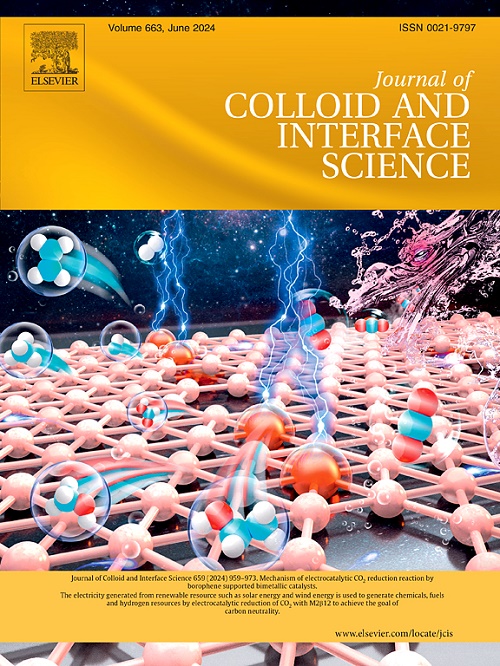用于电子器件相变热管理的声驱动纳米流体
IF 9.4
1区 化学
Q1 CHEMISTRY, PHYSICAL
引用次数: 0
摘要
密闭空间的热管理对电子设备的性能提出了严峻的挑战。两相冷却通过相变过程中的潜热利用证明了在紧凑环境中的特殊传热能力。然而,由于气泡在密闭空间内的粘附和积聚,气膜的形成会过早发生。本研究开发了一种低功耗声学微通道冷却系统,结合纳米流体,通过结合主-被动策略实现显著的热增强。采用高通量微反应器实现了纳米流体的快速合成。声激励有利于气泡的脱离和迁移,从而延缓气膜的形成,而纳米流体则大大增加了核位密度,增强了干点的收缩。这些效应共同提高临界热通量(CHF),最大化传热系数(HTC),并降低表面温度。在流速为0.1 m·s−1时,0.01 wt%纳米流体与声学的结合使CHF提高52%,HTC提高74%,表面温度显著降低13.2 K。气泡跟踪和聚类算法的结合定量分析了气泡动力学和成核特征,阐明了性能改进背后的基本机制。本文章由计算机程序翻译,如有差异,请以英文原文为准。

Acoustic-driven nanofluids for phase-change thermal management of electronic devices
Thermal management in confined spaces presents a critical challenge for electronic device performance. Two-phase cooling demonstrates exceptional heat transfer capabilities in compact environments through latent heat utilization during phase change process. However, vapor film formation occurs prematurely due to bubble adhesion and accumulation in confined spaces. This study develops a low-power acoustic-enabled microchannel cooling system coupled with nanofluids, achieving significant thermal enhancement through combined active-passive strategies. Rapid synthesis of nanofluids is realized by high-throughput microreactor. Acoustic excitation facilitates bubble detachment and migration to delay vapor film formation, while nanofluids substantially increase nucleation site density and enhance shrinkage of dry spots. These effects collectively enhance critical heat flux (CHF), maximize heat transfer coefficient (HTC), and reduce surface temperature. At the flow velocity of 0.1 m·s−1, the integration of 0.01 wt% nanofluid with acoustics results in a 52 % enhancement in CHF and a 74 % improvement in HTC, along with a notable 13.2 K decrease in surface temperature. The combination of bubble tracking and clustering algorithms quantitatively analyzes bubble dynamics and nucleation characteristics, elucidating the fundamental mechanisms behind performance improvement.
求助全文
通过发布文献求助,成功后即可免费获取论文全文。
去求助
来源期刊
CiteScore
16.10
自引率
7.10%
发文量
2568
审稿时长
2 months
期刊介绍:
The Journal of Colloid and Interface Science publishes original research findings on the fundamental principles of colloid and interface science, as well as innovative applications in various fields. The criteria for publication include impact, quality, novelty, and originality.
Emphasis:
The journal emphasizes fundamental scientific innovation within the following categories:
A.Colloidal Materials and Nanomaterials
B.Soft Colloidal and Self-Assembly Systems
C.Adsorption, Catalysis, and Electrochemistry
D.Interfacial Processes, Capillarity, and Wetting
E.Biomaterials and Nanomedicine
F.Energy Conversion and Storage, and Environmental Technologies

 求助内容:
求助内容: 应助结果提醒方式:
应助结果提醒方式:


